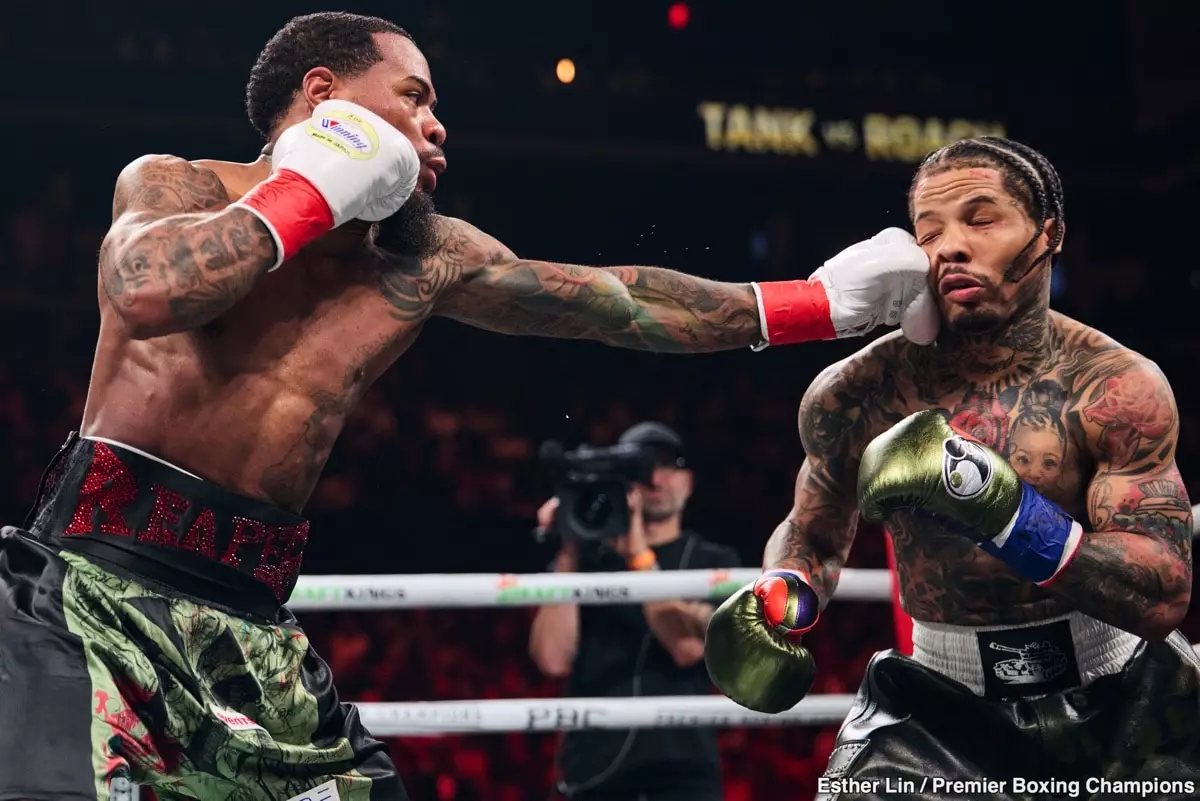In the landscape of modern boxing, few events stir as much intrigue and controversy as the upcoming exhibition between Gervonta “Tank” Davis and Jake Paul. While the fighters themselves are often spotlighted, the true narrative lies in the spectacle of spectacle: a carefully curated clash designed more for entertainment and profit than competitive legacy. Davis, a bona fide champion with a storied career and a legitimate place in boxing’s pound-for-pound elite, finds himself stepping into the ring with a YouTuber-turned-boxer whose primary skill is self-promotion. This pairing exemplifies a broader trend: boxing increasingly blurs the line between sport and spectacle, where fame and risk often outweigh tradition and integrity.
The event’s placement on Netflix signals a strategic shift—a move toward digital dominance and mass-market appeal. Yet, beneath the glossy surface, questions abound. Is this bout genuinely a fair test of skill? Or is it a calculated move by promoters to maximize viewership at the expense of the sport’s credibility? In many ways, the fight represents a microcosm of boxing’s evolving identity—torn between its roots as a gritty sport and its present as a high-stakes entertainment enterprise. The weight disparity and the exhibition format further diminish the fight’s legitimacy as a true contest, transforming it into a spectacle that serves viewers’ appetite for drama.
Money Over Merit: The Cost of Modern Boxing’s Priorities
There is little doubt that Tank Davis’s motivations are as much about financial gain as they are about legacy. Many critics argue that Davis, once heralded as a future great, has become enamored with the lucrative opportunities that come from high-profile exhibitions. His apparent boredom with traditional boxing and desire for the biggest paychecks have kept him from pursuing meaningful titles and rematches that could cement his greatness.
This situation starkly contrasts with the path of fighters like Lamont Roach Jr., who perceives Davis’s avoidance of their rematch as emblematic of a bigger issue—fighters avoiding tough challenges in favor of quick cash. Roach’s frustration is palpable; he’s been sidelined, much like many talented fighters who find themselves caught in the web of boxing’s financial hierarchy. His social media outburst—highlighted by the “duck” emojis—encapsulates the disappointment among loyal fans who value actual competition over spectacle.
Roach’s candidness underscores a fundamental tension: the notion that boxing’s current landscape often rewards reputation and revenue more than resilience and skill. His recent discussions with the WBC champion Shakur Stevenson suggest a desire to forge a different path—one rooted in competitive merit rather than spectacle-induced distraction. The fact that Davis’s retreat from a legitimate rematch has fueled this narrative isn’t just unfortunate; it’s indicative of a sport increasingly driven by economic incentives rather than sporting ideals.
The Future of Fighters and the Fight for Respect
While Tank Davis continues to chase the highest paydays, fighters like Lamont Roach Jr. are left in limbo, fighting to preserve their careers and reputations. Roach’s declaration of a potential fight with Stevenson opens a new chapter—one that might restore some credibility to a sport muddled by exhibition fluff. Still, it raises questions: Has boxing sacrificed its integrity for fleeting attention? Or can fighters like Roach and Stevenson realign the sport’s focus on substance?
The boxing community now faces a pivotal crossroads. The allure of blockbuster events with YouTubers and social media stars is undeniable, but so is the need to uphold the core values of resilience, skill, and competition. Whether Davis’s exhibition proves to be a one-off spectacle or a catalyst for deeper reflection remains to be seen. What is clear is that boxing’s future depends on whether it can strike a balance—embracing entertainment without sacrificing the sport’s integrity and respect. For fighters like Roach, the real victory lies not in quick paychecks but in earning respect through hardship, determination, and genuine competition.


Leave a Reply